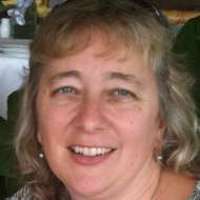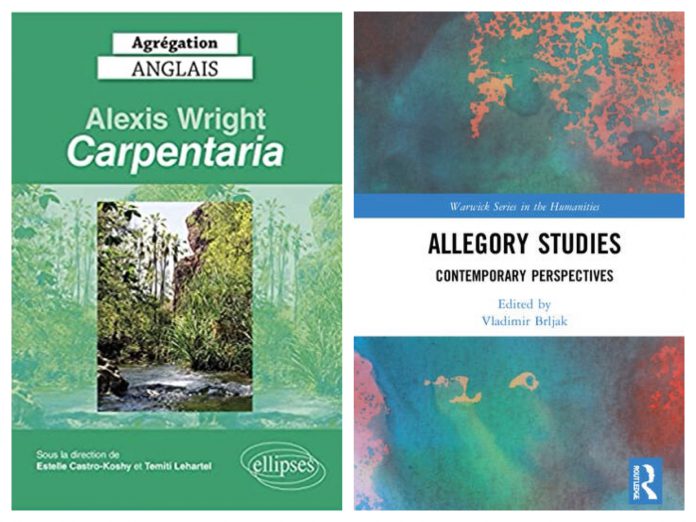Dr. Brenda Machosky, a professor of English and Humanities at the University of Hawaiʻi–West Oʻahu, contributed an article in a recently published book and participated in a conference both related to the novel, “Carpentaria,” which is on the syllabus of the prestigious French Agrégation teacher’s exam — and Machosky was the only scholar from the United States published in the text and who presented at the event. In addition, Machosky authored another article in a recently published international book about allegory studies.
Machosky’s article, “Alexis Wright’s Storytelling Novel and its ‘particular kind of knowledge’,” has been published in “Alexis Wright: Carpentaria,” edited by Estelle Castro-Koshy and Temiti Lehartel. A copy of the essay collection, published on Sept. 21 by Ellipses, is available at the James and Abigail Campbell Library.
“Alexis Wright: Carpentaria” is the first publication to provide specific scholarship on Waanyi (Aboriginal Australian) writer Alexis Wright, whose novel “Carpentaria” was selected for the French Agrégation teacher’s exam in English literature. The post-masters level, highly competitive exam is taken both by university students who want to become teachers and by teachers who are already working and want a promotion.
The exam syllabus includes the study of a small number of works of literature, half of which change every year. “Carpentaria” is the first ever work by an Indigenous Australian writer to be on the syllabus, and the first Australian author since Patrick White in 1976.

Machosky’s essay “focuses on how the novel form is adapted into a storytelling mode, and the importance of the kind of knowledge transmitted through story,” she said.
Machosky also participated in an online international conference — Oct. 18 to 19 in Brest, France — which was centered on the novel’s inclusion in the Agrégation. Machosky gave a talk on allegory in this particular storytelling mode.
In addition to her published article in “Alexis Wright: Carpentaria,” Machosky also wrote an article in the international book, “Allegory Studies: Contemporary Perspectives,” edited by Vladimir Brljak and published on Aug. 31 by Routledge.
Her article, “Allegory and the Work of Aboriginal Dreaming/Law/Lore,” brings together allegory with the Australian Aboriginal concept of Dreaming, or as she has modified it, Dreaming/Law/Lore.
Machosky said Dreaming/Law/Lore is a term she developed with guidance from Aboriginal scholars, and is designed to reflect the co-equal elements of a Dreaming associated with ancestral beings, the deep-seated Law that emerges from the space, and the stories that keep the law and the dreaming active in everyday life, and in literature.
“The essay strives to respect the difference of Aboriginal ontology as expressed in the publicly shared aspects of the Dreaming, and in the literary presentations of it in works like Kim Scott’s ‘Benang: From the Heart’ and ‘That Deadman Dance,’ ” Machosky said.
She continued, “Rather than treating the Aboriginal way of being as ‘other,’ this article approaches it as simply different, and uses the Western theories of difference not only to consider the workings of the Dreaming through a Western theoretical model but simultaneously to question the premises of that Western model and remain, as much as possible, in the space of difference that forms the threshold between Euro-American and Indigenous ways of experiencing the world.”
